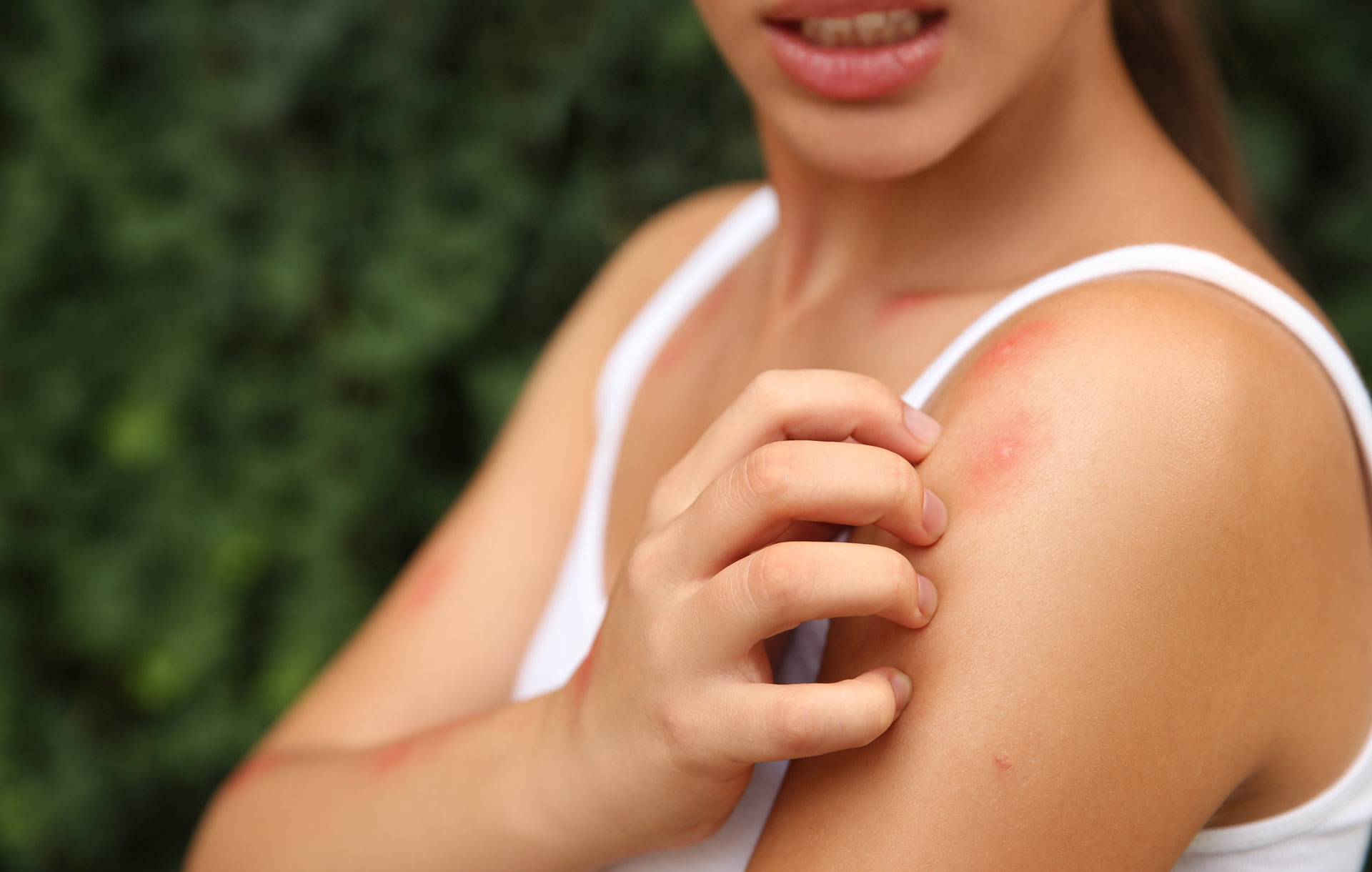
How To Treat Skin Allergies and What To Use This Summer,
Insight From Doctor and Beauty Entrepreneur Dr. Liia Ramachandra
Summer is a time for fun in the sun and enjoying the benefits of warm weather. But spending time outside and being exposed to UV rays and allergens can cause your skin to flare up if you’re not careful. Dr. Liia Ramachandra, an expert on allergies, autoimmune conditions, and skincare formulations, has many tips and tricks on how to treat skin allergies and what to use this summer.
Proactive Treatment With Sunscreen
No sunscreen can completely block UV rays, but it does offer a crucial barrier of protection. Any skin with potential exposure to UV rays should be covered with sunscreen 30 minutes before going outside then reapplied (at least) every two hours. When choosing a sunscreen, be sure to read the label to confirm you are not allergic to any ingredients and choose an SPF level appropriate for you.
Harmful UV Rays are around all year long, not only in the summer. Dr. Liia recommends protecting your skin with sunscreen any time your skin will be exposed, even in the winter!
Minimizing UV Exposure With Clothing and Hats
High heat and exposure to UV rays can cause common skin problems like dry, irritated skin and comedogenic skin conditions like pimples, blackheads, and rashes. To help remedy this problem, wear light clothes, a hat that covers your face, neck, and back and avoid direct sunlight by staying in the shade.
Use Mild Soaps
After being exposed to UV light, choose a mild, oil-free face wash to clean your skin. Immediately replacing your facial oils with light skin serums and oil-free creams can help your skin combat dryness and irritation caused by exposure to excessive ultraviolet light conditions.
Being in a swimming pool or in seawater can help cool you down but can also increase the chances of a breakout. After swimming, take a shower with warm water and use a mild soap. Then, add skincare products that help moisturize your skin.
“Do not use comedone extractors on thin, compromised skin as it can cut or bruise the skin.”
[ihc-hide-content ihc_mb_type=”show” ihc_mb_who=”2,4,5,6,7″ ihc_mb_template=”3″ ]
Be Aware of Sun-Sensitivity With Medications and Foods
Certain types of foods and medicines and sun-sensitizing drugs can cause sensitivity or trigger an allergic reaction when your skin is exposed to the sun’s ultraviolet rays. Celery, dill, fennel, figs, lime, parsley, and wild carrots are known to enhance sensitivity. Some medications and vitamins include antihistamines, oral contraceptives, non-steroidal anti-inflammatory drugs (NSAIDs) like ibuprofen, certain antibiotics, certain oral diabetes drugs, diuretics, and specific types of antidepressants.
Check the Ingredients in Skincare Products
Common ingredients in skincare products, perfumes, and natural oils contain certain sun-sensitizing chemicals. Alpha hydroxy acids like glycolic acid, salicylic acid, and Retin-A are in many skincare products, and some acne serums and creams contain chemicals like benzoyl peroxide, known to cause sensitivity. Musk, rosemary, and sandalwood can also trigger these effects on sunlight.
Dr. Liia has found that high-quality skin creams and serums can help soothe skin conditions. Dr. Liia recommends “stay[ing] away from gluten in your skincare” as well as allergen-free, vegan-friendly, light serums and creams for all skin types to hydrate skin, retain moisture, and alleviate dryness and irritation.
A simple way to avoid skin issues and sun sensitivity caused by allergens is to find out what your allergens are and avoid them. You can pinpoint your allergens by eliminating common sun-sensitivity-causing ingredients then re-introducing them to your skin or diet. Now that you know how to treat skin allergies and what to use this summer, you can be safe while having fun!
[/ihc-hide-content]












